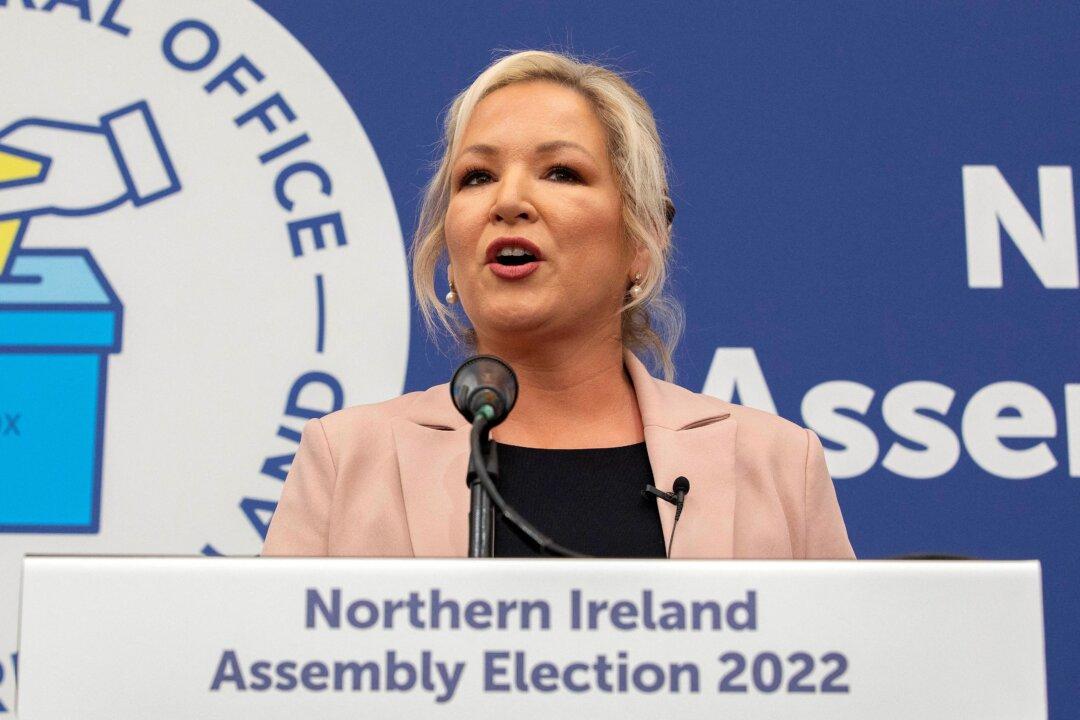Sinn Fein, an Irish nationalist political party that has links to the Irish Republican Army (IRA), has won a historic victory by becoming the largest party in the Northern Ireland Assembly for the first time.
In last week’s UK local elections, Sinn Fein won 27 of the 90 seats in the Stormont assembly, beating the loyalist Democratic Unionist Party (DUP) by two seats. The remaining seats went to smaller parties—the Alliance Party got 17, the Ulster Unionist Party (UUP) got nine, and the Social Democratic and Labour Party got eight, with four others elected.





